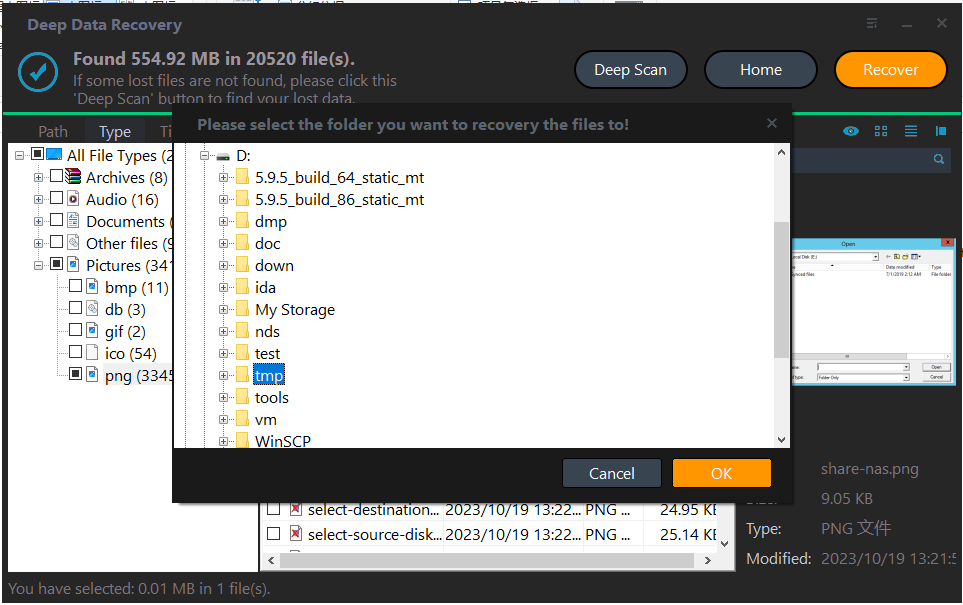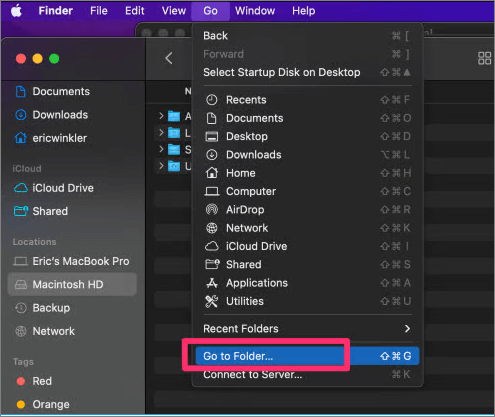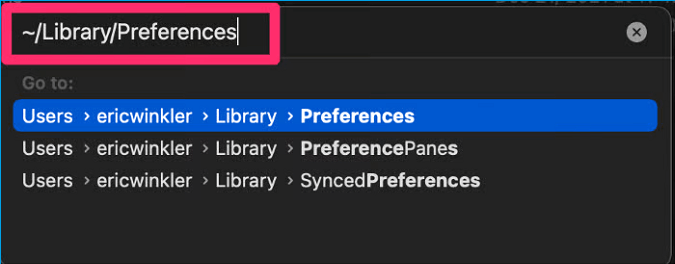Solve Zsh: Command Not Found: Pip on Mac | 4 Fixes
Are you wondering how to fix the zsh: command not found: pip error? This article has explained the top 4 methods to solve zsh: command not found: pip error.
| Workable Solutions | Step-by-step Troubleshooting |
|---|---|
| 1. Install Pip Package on macOS Ventura, Monterey | The most elementary solution needs programmers to utilize the pip install process to debug...Full steps |
| 2. Update pip to the Latest Version on Mac | Hit the Command + Space key. Type the terminal button. Press the enter button...Full steps |
| 3. Set Up Path or Environment Correctly in Terminal | When you're trying to utilize the inaccurate version of pip, this zsh: command not found: pip error...Full steps |
| 4. Restart or Reset Mac Terminal and Try Again | Shut down the Terminal application in case it's open. Shut down the Terminal application in case it's open...Full steps |
Main Causes of Zsh: Command Not Found: Pip Error
Pip lets you download packages to reference them in your Python code. The Python packages, which come with the OS, might need to be updated, or current might lead to conflicts during installation. Hence, using a pip is crucial.
While trying to install a package utilizing pip sans having the package manager downloaded on your PC, you will face the zsh: command not found: pip error. In today's article, we will discuss how to fix zsh: command not found: pip in case you have this error on your macOS base system or Linux system.
There could be several reasons for this kind of Zsh command not found error to happen. But it usually occurs when programmers become oblivious to inserting the pip command with a particular name. Consequently, the system cannot spot the pip package, which leads to severe and casual programming sessions. However, this error is pretty general and usually happens with untrained users who must remember to add vital functions. Additionally, this error occurs with macOS and Linux only. If you're a Windows user, you must not worry about this.
Even though installing Pip macOS is a simple procedure, it's advisable to follow the instructions in this article. Let's first discover the potential causes of the error:
- 1. Zsh Pip package is not installed on Mac. This is another reason for the zsh: command not found: pip mac m1 error. You can eliminate this error by installing the pip package from the official archive.
- 2. $PATH environment variable check. This error happens when the PATH variable consists of a detailed list of PATH having different system binaries. Hence, PATH can be manipulated and may not possess the pip binary's location.
Note: If your photos are lost or damaged because of this issue, you can repair JPEG on Mac with a professional recovery tool.
Ensure You Won't Lose Data When Fix Zsh: Command Not Found: Pip
You may encounter zsh: command not found: pip error anytime, which might lead to data loss. Understandably, you must not want that! Hence, Deep Data Recovery for Mac can recuperate every data you have lost due to errors like zsh: command not found: brew.
- Qiling recovery tool can quickly recover Trash on Mac and recover data from formatted hard drives.
- Qiling can support over 1000 file types and formats, including JPG, RAW, ART, XLTX, DOC, APE, M4A, etc.
- Qiling will retrieve files deleted from Mac Terminal and find files deleted by antivirus software.
Here are detailed steps to avoid data loss due to zsh: command not found: pip error:
Step 1. Search for lost files
Select the disk location to search for lost files (it can be an internal HDD/SSD or an external hard drive) where you lost data and files. Click the "Search for lost files" button.
Note: Before data recovery, you'd better click "Disk Backup" from the left sidebar to create a backup of your HDD/SSD to avoid further data loss. After backing up, the software can recover data from your disk backup, and you can use the HDD or SSD again.

Step 2. Go through the scanning results
This software will immediately scan your selected disk volume and display pictures, documents, audio, videos, and emails on the left pane.

Step 3. Select the file(s) and recover
Click the data to preview, and click the "Recover" button to have them back.

How to Fix Zsh: Command Not Found: Pip Error on Mac
We have mentioned that you may encounter zsh: command not found: pip error for two reasons. Here are four solutions to help you fix this Zsh problem on Mac. Keep reading to learn more:
Method 1. Install Pip Package on macOS Ventura, Monterey
The most elementary solution needs programmers to utilize the pip install process to debug the Pip error on Mac from their Python syntaxes sans influencing other functions. It's hassle-free to finish off because developers and programmers can consist of an isolated package with the system's manager.
For example, here are the two leading solution syntaxes you can reutilize in your Python program to install the current pip package on your macOS Ventura and Monterey. The programmers can conclude the first answer by adding the codes in the following lines.

Customers can obtain the latest pip update vital for troubleshooting the error. Additionally, developers can utilize an identical syntax to install pip: $ sudo yum install python34-pip. This command aids programmers in installing Pip 3 across all platforms, guaranteeing that the Pip issue won't recur when utilizing Python and its features. Suppose the aforementioned fixes are unsuccessful, on the other hand. In that case, you may employ the code in the accompanying example to set up the most recent Pip 3: $ sudo pacman -Syu python-pip
Once more, this answer syntax will enable Pip 3 on all platforms without altering the core components of Python or Pip. Developers can quickly troubleshoot the mistake as a consequence, which is essential for a positive experience with coding.
If you have fixed this error with our recommended method, you can share this method with your friends!
Method 2. Update Pip to the Latest Version on Mac
If you are thinking of how to fix zsh: command not found: pip on Mac, follow the steps below:
Step 1. Hit the Command + Space key.
Step 2. Type the terminal button.
Step 3. Press the enter button.
Step 4. If pip isn't working, you can upgrade to the newest version: Python -m pip install --upgrade pip.
It will help you uninstall the recent pip version of the PC and replace it with the current version.

Method 3. Set Up Path or Environment Correctly in Terminal
When you're trying to utilize the inaccurate version of pip, this zsh: command not found: pip error will occur. For instance, pip3 works solely for Python3. On the other hand, pip functions for Python2.
It's possible to verify your Python version on Mac Terminal like this:

Follow the steps below if your code is in Python 2 and you're willing to utilize an outdated version of pip.
NB: Python 2 is currently not maintained. It is preferable to employ the most recent pip version and to update your code repository to Python 3.
These are the leading steps to follow only when using Python 2.
Install pip (The outdated version):
Step 1. The pip command is installed on your machine using the sudo easy_install pip command.
Step 2. Utilize the pip program now, and it ought to function correctly.
Method 4. Restart or Reset Mac Terminal and Try Again
You can execute a configuration reset to reset Mac Terminal. Here are the steps to factory reset Mac terminal:
Step 1. Shut down the Terminal application in case it's open.
Step 2. Opt for the Go->Go to Folder on the Finder menu.

Step 3. Enter/Library/Preferences in the Go to Folder box when prompted.

Step 4. Search for the file named com.apple.Terminal.plist in the list of files that Finder displays after opening the destination folder.
Step 6. Move to Trash needs to be chosen by right-clicking the document's name.

Step 8. After restarting the Terminal program, you will now notice that the preferences have been restored to their defaults.
Bottom Line
This zsh: command not found: pip error mainly occurs while working with distinct Python versions in Linux and macOS. You must follow the below-mentioned troubleshooting processes:
- The path's location is vital as it creates the relationship between Python and the system.
- This error could happen when programmers must remember to install the current pip unit.
- Because developers can duplicate and replace the code segments, executing the suggested syntaxes is simple.
You can easily eliminate this error if you follow these debugging processes and the aforementioned ones. If the data has been lost while fixing this error, you can retrieve all these files by downloading Deep Data Recovery for Mac.
Zsh: Command Not Found: Pip FAQs
These are the detailed FAQs to under this error better:
How to fix the zsh permission denied issue on Mac?
Follow the steps below to fix the Zsh permission denied issue on Mac:
- The "command" button needs to be double-checked, which is a great idea to start by verifying the command causing this error.
- Unlock the directory or file.
- Insert execute permissions.
- Modify the user and group's access.
Why is the pip command not found on Mac?
You may occasionally encounter the pip: command not found problem when installing packages. The following factors could be to blame for this error. Despite being set up, pip is incompatible with the present setup.
How do I install pip on my Mac Terminal?
- The Mac terminal needs to be opened via the launchpad.
- Hit the Python 3 or Python -m ensurepip and the "Enter" button.
- Ensurepip will download pip in case pip is missing.
How do I fix the command not found on Mac?
- Verify the command's syntax.
- Set the usual macOS path to $PATH.
- You need to incorporate your directory into PATH.
- macOS can be reinstalled or restored using Time Machine.
Related Articles
- What Graphics Card Do I have? Here's How to Check Graphics Card
- Repairing Disk Errors This Might Take an Hour - How to Fix?
- How to Fix PC Randomly Turns Off
- External Hard Drive Lifespan: How to Prolong It [5 Ways]